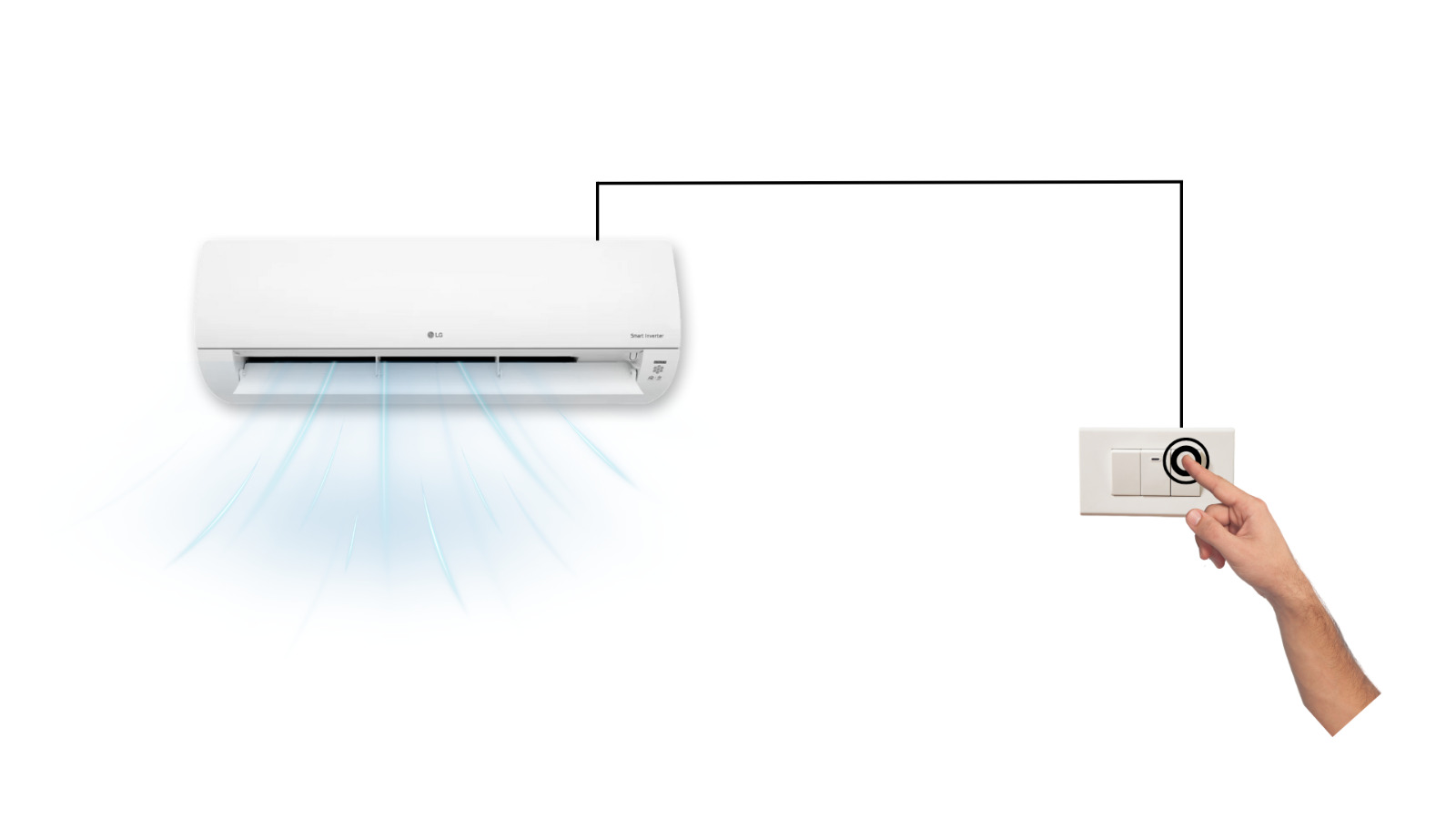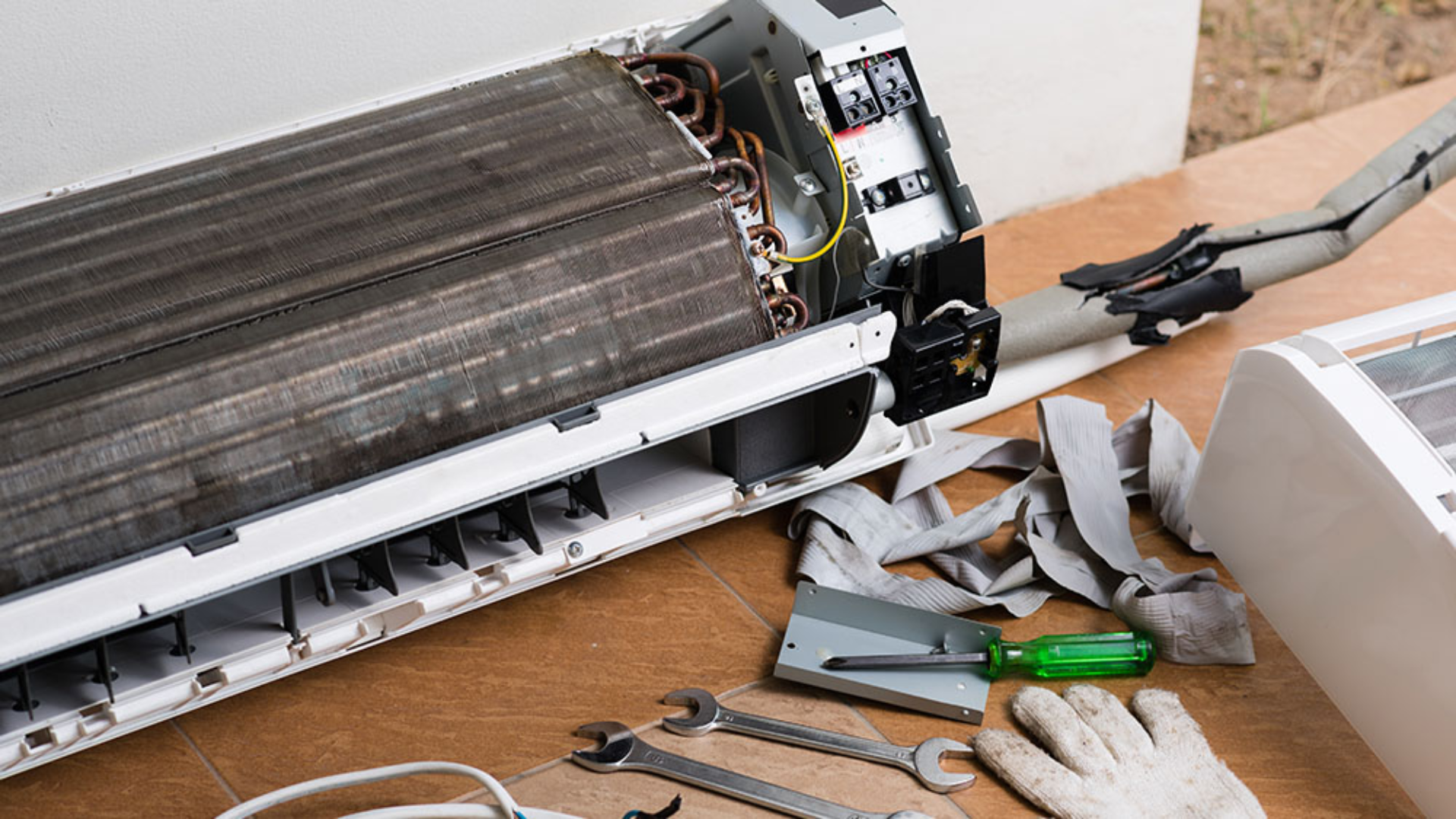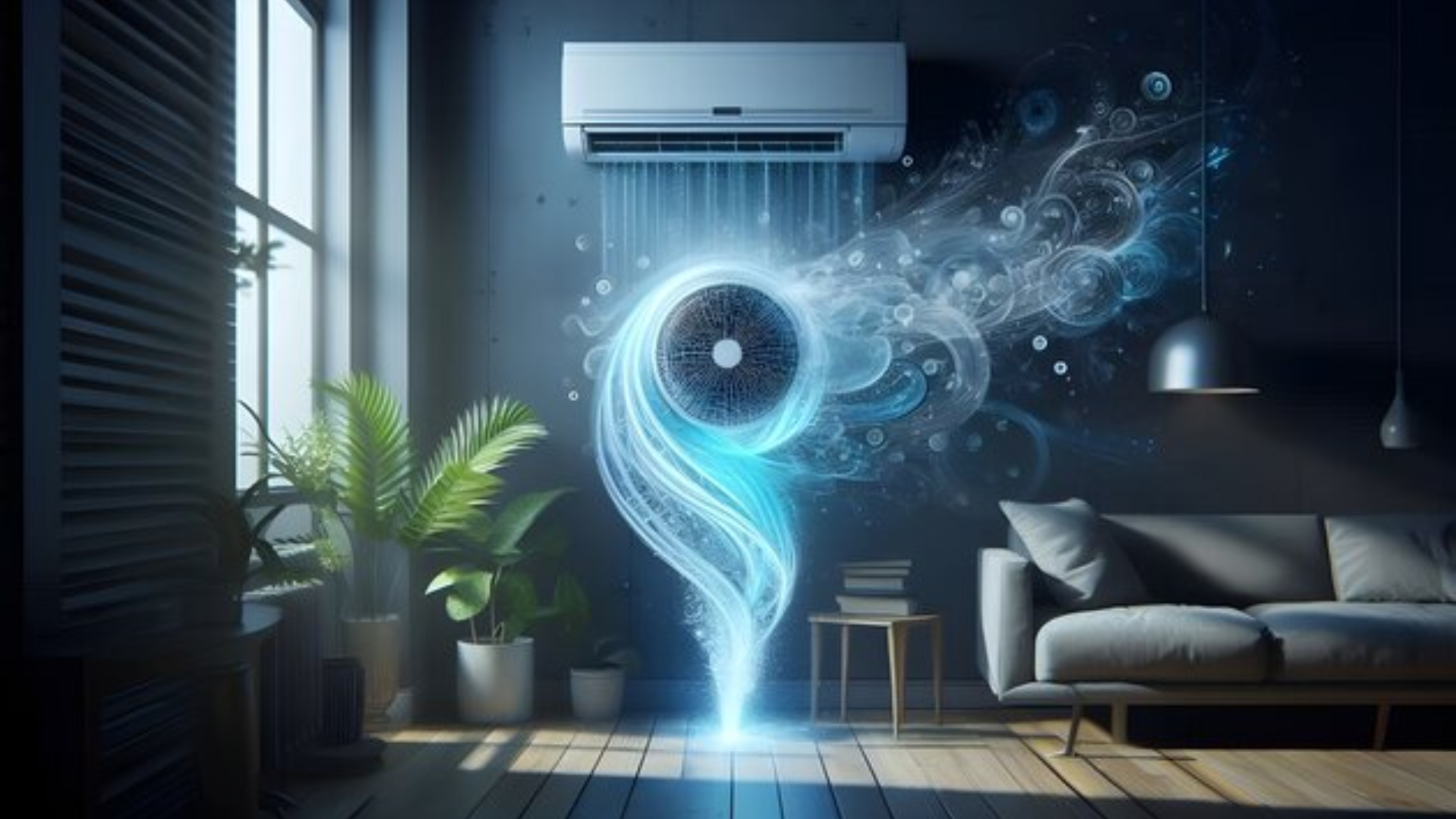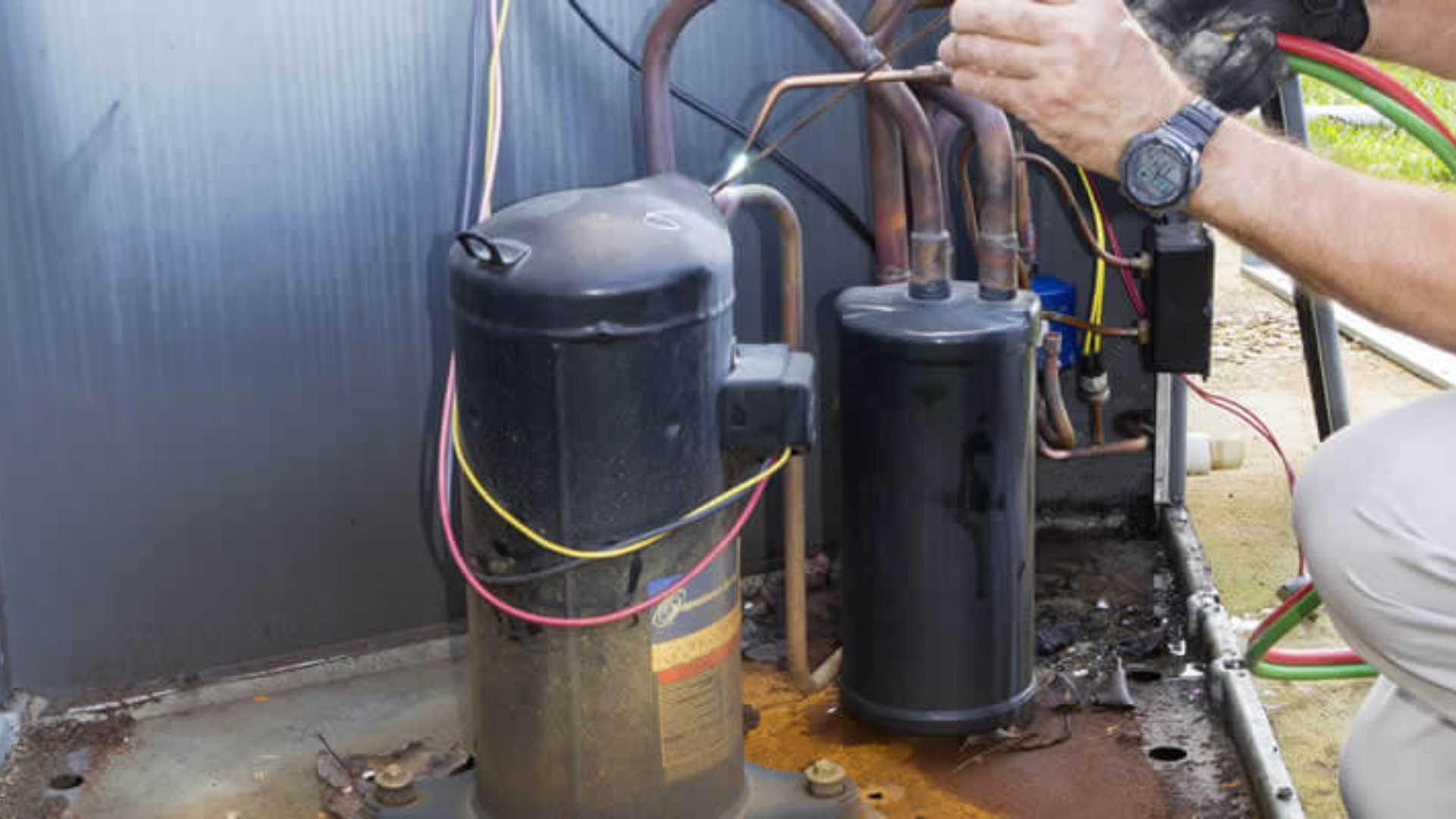What happens if we turn off the AC using the power button instead of the remote while it's still running?
Published on 2024-10-21
Occasionally, people may turn off their air conditioners (AC) directly using the power button or mains switch, believing it won’t make much difference. However, this practice is generally discouraged due to its potential drawbacks. Directly shutting off the AC can create issues such as added strain on the compressor, risk of electrical surges, and interruption of the cooling cycle. Such abrupt terminations may harm internal components, decrease energy efficiency, and ultimately shorten the unit's lifespan. Therefore, it’s advisable to use the remote or on-off button to ensure a proper shutdown, which helps the system function effectively, reduces energy costs, and prolongs the AC's durability.

Potential Damage to Components
Turning off the AC directly from the mains power switch or the power button can cause stress on key components like the compressor and the fan. The compressor, in particular, is one of the most critical parts of an AC, responsible for the cooling process. Abruptly cutting off the power can cause pressure buildup and place undue strain on these components, potentially leading to damage over time.

System Protection Mechanisms are Bypassed
When you use the on-off button on the remote or the AC unit, the system undergoes a controlled shutdown. This ensures that the compressor and fan stop running in an orderly fashion, avoiding any pressure buildup or sudden electrical surges. By turning off the AC from the mains, you bypass these protection mechanisms, which could increase the likelihood of mechanical or electrical failures in the long run.
Impact on Energy Efficiency
Air conditioners are designed to go through a shutdown sequence when powered off using the remote. This sequence helps the system balance itself and stop the compressor and fan safely. When you skip this sequence by turning the AC off using the power button, it may lead to higher energy consumption when the system restarts. This can negatively impact the energy efficiency of your AC and lead to higher electricity bills.

Loss of Memory and Settings
Most modern ACs have memory features that save your last-used settings such as temperature, mode, and fan speed. Turning the unit off with the remote ensures these settings are saved for the next time. However, switching off the AC via the power button or mains may result in the loss of these saved settings, requiring you to reconfigure the AC every time you turn it back on.

Increased Wear and Tear
Turning off the AC suddenly, especially via the power button or mains, can lead to increased wear and tear on the internal parts. This can result in more frequent repairs and reduced longevity for components like the compressor, fan motor, and control board.

Convenience of Using the Remote
The AC remote is designed for ease of use, allowing you to control various functions, adjust temperature, and set modes like cooling, heating, or fan mode. Using the remote to turn off the AC also helps ensure a proper shutdown process. In addition to protecting internal components, it saves the inconvenience of manually resetting the unit’s settings every time it’s turned on again.

When to Use the Power Buttons
If the AC unit is malfunctioning and won’t respond to the remote, cutting the power might be necessary. However, this should be a last resort. If you have to turn off the AC in this way, it’s best to have the unit serviced as soon as possible to avoid any potential damage caused by bypassing the system’s normal shutdown procedure.
Auto-Clean Features and System Maintenance
Many ACs have auto-clean or self-cleaning features that are activated during the shutdown process when using the remote. These features help prevent dust and mold buildup inside the unit. By turning the AC off via the power button or mains, you may disrupt these cleaning processes, which can negatively affect the AC’s performance and indoor air quality over time.
To maintain your AC's performance and longevity, always use the remote control or unit’s on-off button for regular shutdowns. This ensures the system completes its cooling cycle, protects its internal components, and saves energy. If you need to cut the power for maintenance or due to a malfunction, make sure to have the unit checked and serviced to prevent potential long-term damage.

AC चलिरहेको अवस्थामा रिमोटको सट्टा पावर बटनबाट अफ गर्दा के हुन्छ?
धेरै मानिसहरूले कहिलेकाहीं एसी (AC) सिधै पावर बटन वा mains switch बाट बन्द गर्छन्, सोच्दै कि यसले धेरै फरक पर्दैन। तर, यस्तो गर्नु सामान्यतया recommended हुँदैन। पावर बटन वा mains switch बाट एसी बन्द गर्दा विभिन्न negative impacts हुन सक्छन्। सबैभन्दा पहिले, यसले compressor र fan जस्ता महत्त्वपूर्ण components मा अनावश्यक stress पैदा गर्छ। Compressor एसीको सबैभन्दा महत्त्वपूर्ण भाग हो र अचानक power cut गर्दा यसमा pressure buildup हुन सक्छ, जसले लामो समयसम्म damage पुर्याउन सक्छ।
अर्को कुरा, रिमोट वा unit को on-off button प्रयोग गर्दा एसी सुरक्षित रूपमा बन्द हुन्छ, जसले compressor र fan लाई सही तरिकाले रोक्न मद्दत गर्छ, र कुनै पनि pressure buildup वा electrical surges को समस्या हुनबाट जोगाउँछ। रिमोटबाट एसी बन्द गर्दा प्रणालीले आफैंलाई balance मा ल्याएर energy efficiency कायम राख्छ, जबकि power button प्रयोग गर्दा यस्तो प्रक्रिया bypass हुन्छ, जसले गर्दा electricity consumption बढ्न सक्छ र electricity bills बढी आउन सक्छ।
धेरै modern AC हरूमा memory features हुन्छन्, जसले तपाईंको पछिल्लो settings जस्तै temperature र mode लाई सुरक्षित राख्छ। सिधै power button वा mains switch बाट बन्द गर्दा यी settings हराउन सक्छन् र पुन: configure गर्नुपर्ने हुन्छ। यसबाहेक, power button बाट अचानक एसी बन्द गर्दा internal parts मा wear and tear बढ्न सक्छ, जसले गर्दा frequent repairs को आवश्यकता र components को longevity घट्न सक्छ।
त्यसैले पावर बटन या mains switch प्रयोग गर्नु भनेको अन्तिम विकल्पका रूपमा मात्र गर्नु पर्छ, खासगरी यदि एसीले रिमोटको order मान्दैन भने। यस्तो अवस्थामा, छिटो servicing गराउनु महत्त्वपूर्ण छ, ताकि system मा कुनै damage नहोस्।
























